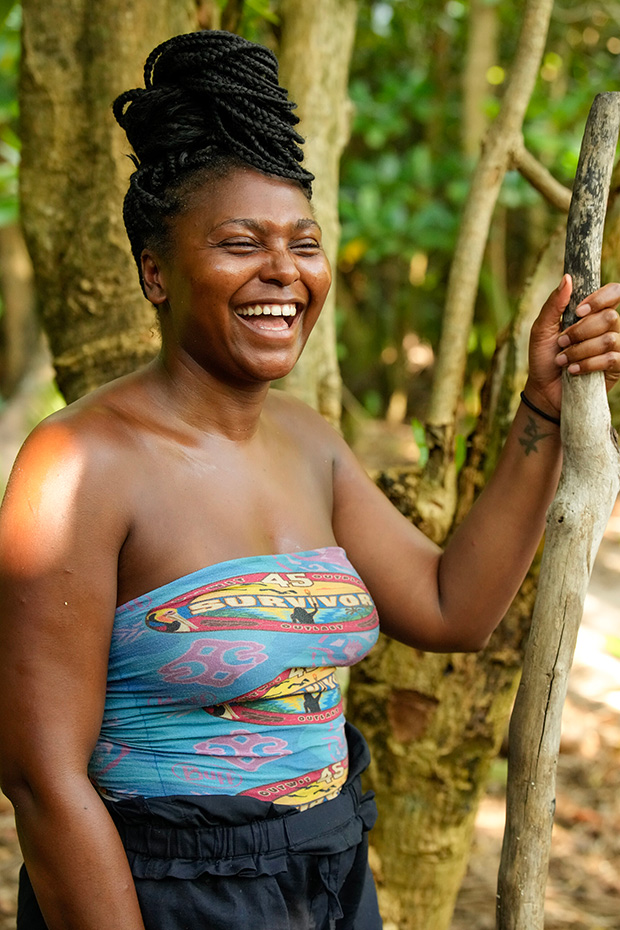
Katurah Topps, 35, is one of five contestants remaining on Survivor season 45 heading into the finale episode on December 20. After finally getting her rival Bruce Perreault out of the game, Katurah has put herself in a good position to make to the end. Despite not being apart of the dominant Reba alliance, Katurah can still make a case for herself to win the game if she’s in the final three. Keep reading to learn more about the intelligent Survivor contestant.
Katurah lives in Brooklyn.
Katurah has been living in Brooklyn, New York for the past six years. She’s originally from St. Louis, Missouri.
Katurah is a civil rights attorney.
Katurah works in policy counsel at NAACP Legal Defense and Educational Fund, Inc., according to her LinkedIn. She described her career in an interview with Parade.
“I’ve been involved in the civil rights side of the law since before I was a lawyer. So, I’ve been an attorney for about eight years now,” she said. “And civil rights work has always been my passion and my focus. You start off a little bit, and you can’t always jump right into it because I gotta get the bills paid and work at the big law firms. So, I did my dues with that. But now, I’m proud to be working at one of the top civil rights law firms in the country.”
Katurah is one of three lawyers on the Survivor 45 cast. The others are Jake O’Kane and Julie Alley.

Katurah went to law school.
Katurah got her law degree from Georgetown University Law Center in 2015, according to her LinkedIn. She went to undergrad at Saint Louis University, where she double majored in Philosophy and French.
Katurah is queer.
Katurah confirmed her sexuality on Twitter after the Survivor 45 cast was announced. “How dope is it that there’s THREE queer women on Survivor 45?!” she wrote, referring to herself, Sabiyah Broderick, and Kellie Nalbandian. “Hope I represent well!” Katurah added.
Katurah felt prepared for Survivor because of her diverse background.
Before she filmed Survivor, Katurah told Parade that she’s used to facing challenges in life as a Black queer woman.
“All three of those identities put me at risk of danger at all times,” she said. “I’m always alert; I’m always in survival mode. I’m always watching. Is this going to be the group that doesn’t like me? Is this going to be the people that feel bothered by me? I’m socially at the bottom in many different ways. And a lot of times, I don’t have advantages, and I just kind of have to figure it out.”